I’ve read books in English, French, and Arabic. Both fiction and non-fiction.
Mostly, I’ll post here non-fiction English books. At least, the ones that I can recommend and might be relevant to most of you.
Also, I’ll skip the books that I read but don’t remember much of them. I spent a decade reading without taking notes. Please don’t do like me. It’s such a waste.
This section is only meant to spark your interest in books. So I’ll only write my impressions and three notes from the books. For more details, summaries and reviews, you can find them on Amazon or any other source.
For a faster research, you can click on any tag below to find the books of your interests.
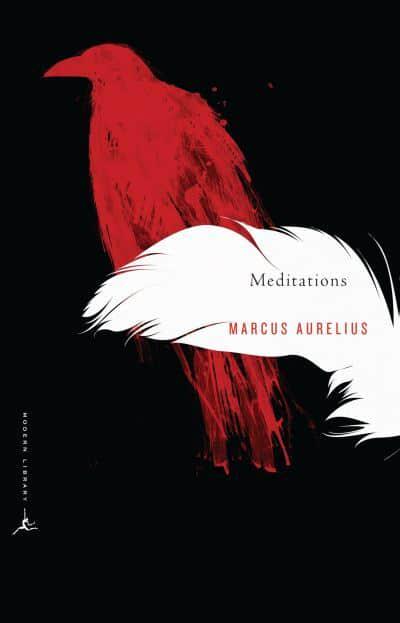
Meditations
A New Translation by Gregory Hays
Marcus Aurelius
Meditations by Marcus Aurelius is about converting knowledge to action. The Roman Emperor keeps reminding himself of the same few truths, and thus, strengthens his soul against the challenges of everyday life to respond in the best manner possible. To learn more, check my wisdom article "Meditations: The Wise Emperor and His Inner Fortress".
Three notes from the book:
1- You could be good today. But instead, you choose tomorrow.
2- It never ceases to amaze me: we all love ourselves more than other people, but care more about their opinion than our own.
3- External things are not the problem. It’s your assessment of them.
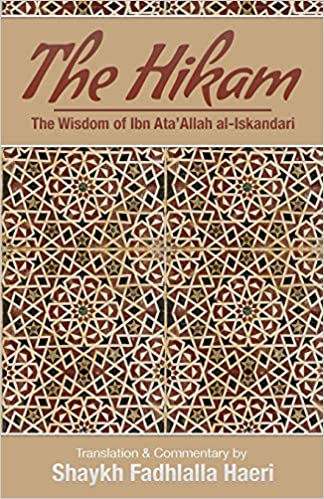
The Hikam
The Wisdom of Ibn Ata’ Allah al-Iskandari
Shaykh Fadhlalla Haeri
I loved The Hikam so much that I read it twice in a row. It will definitely gain a long-term place on my nightstand. It's a collection of 264 aphorisms from a great Sufi master. Too much wisdom packed in a short book!
Al-Iskandari's hikam are timeless, eye-opening, and thought-provoking. You'll find some of my favorite hikam, thoughts, impressions, and commentaries on my top 3 in "Book Notes".
Three notes from the book:
1- If you want to receive gifts, then perfect your spiritual poverty and desperate need: “Alms are only for the poor.” [9:60]
2- Reflection is the lantern of the heart, so when it leaves the heart has no light.
3- Looking out for the faults hidden within you is better than looking out for the invisible realities veiled from you.
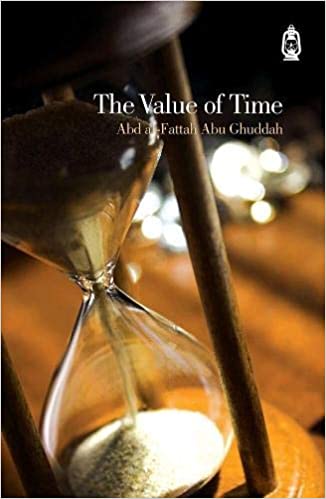
The Value of Time
A collection of amazing sayings, anecdotes and wonderful stories of the scholars of the Muslim Ummah
Shaykh Abd al-Fattah Abu Ghuddah
Learning about the accomplishments of great Muslim scholars is inspiring. They could marry a rich spiritual life, hunger for knowledge, and action that benefit themselves and others beyond measure. This is everything a Muslim would want to aspire to. I wrote an article about this book that you can find in Articles-->Book Notes-->The Value of Time. This book is magical as it gives an immediate boost to ambition and determination.
Three notes from the book:
1- The Prophet (ﷺ) said: “There are two blessings that many people waste: health and free time.” [Bukhari]
2- Imam al-Shafii said: “Keep your soul occupied with good, otherwise it will keep you occupied with evil.”
3- Imam al-Halabi wrote in the biography of al-Suyuti in Bughyat al-Wuat:
To do a thing today, and the same tomorrow.
Gathering is the essence of knowledge.
Thus one may achieve wisdom.
For streams are but the gathering of drops.
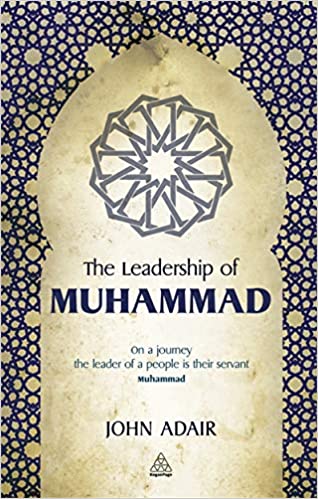
The Leadership of Muhammad
On a journey, the leader of a people is their servant
John Adair
This book focuses more on the bedouin beliefs at the time of the Prophet. It analyses some events of Muhammad's life to show the leadership qualities he displayed. This book inspired me to write my speech "Winning Together" when I was still a Toastmasters member.
Three notes from the book:
1- Deal as gently with the faults of others as you do with your own.
2- Muhammad was not a reasonable man, not even by the standards of his day. But reasonable men do not change the world.
3- When God wants to punish the sheep he sends them a blind shepherd.
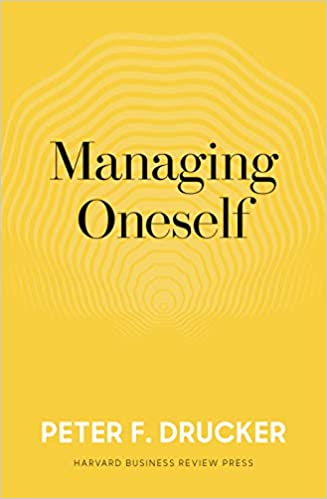
Managing Oneself
The Key to Success
Peter F. Drucker
Peter Drucker is considered the father of modern management. In this little gem, he's answering few questions to help us develop ourselves and manage our working life effectively.
Three notes from the book:
1- Most people think they know what they are good at. They are usually wrong. More often, people know what they are not good at--and even then more people are wrong than right.
2- The only way to discover your strengths is through feedback analysis. Whenever you make a decision or take an action, write down what you expect will happen. Nine or 12 months later, compare the actual results with your expectations.
3- Successful careers are not planned. They develop when people are prepared for opportunities because they know their strengths, their method of work, and their values.
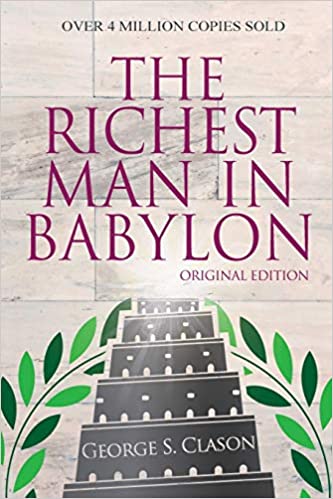
The Richest Man In Babylon
Over 4 million copies sold
George S Clason
I haven't become wealthy after reading this book, but my saving habits improved. It contains common-sense (but often forgotten) money management principles. The younger you read this book, the better it is. Furthermore, this classic of personal finance is short and easy to read.
Three notes from the book:
1- A part of all you earn is yours to keep. It should be not less than a tenth no matter how little you earn. It can be as much more as you can afford. Pay yourself first.
2- Opportunity is a haughty goddess who wastes no time with those who are unprepared.
3- That what each of us calls our "necessary expenses" will always grow to equal our incomes unless we protest to the contrary.
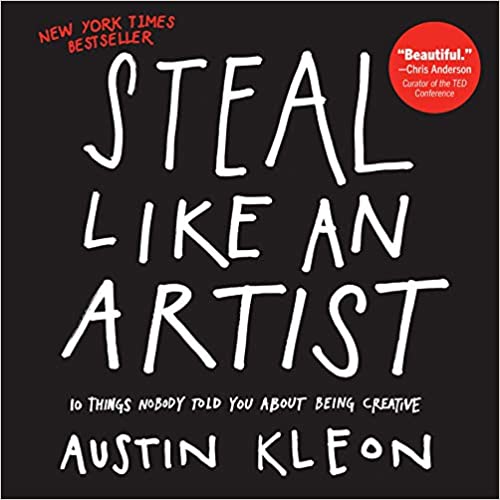
Steal Like an Artist
10 Things Nobody Told You About Being Creative
Austin Kleon
We only steal what we love. In the process of using the object of our theft, we discover both our limitations and our singularity. You’ll become an active thief after reading this book. But don’t worry, it’s all halal!
Three notes from the book:
1- Plagiarism is trying to pass someone else’s work off as your own. Copying is about reverse-engineering.
2- Don't just steal the style. Steal the thinking behind the style.
3- Our failure to copy our heroes is where we discover where our own things live. That is how we evolve.
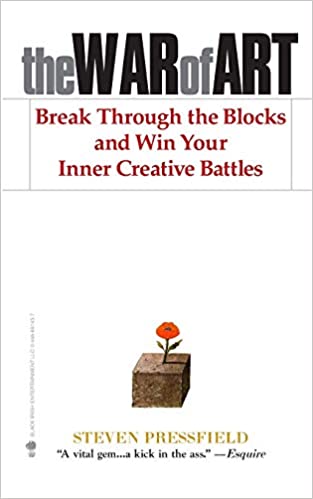
The War of Art
Break Through the Blocks and Win Your Inner Creative Battles
Steven Pressfield
I love short books that go straight to the point. This book is one of them. It’s all about this invisible force that stands between us and our work. He calls it Resistance.
Three notes from the book:
1- Most of us have two lives. The life we live, and the unlived life within us. Between the two stands resistance.
2- The amateur believes he must first overcome his fear; then he can do his work. The professional knows that fear can never be overcome.
3- Procrastination is the most common manifestation of Resistance because it’s the easiest to rationalize.








